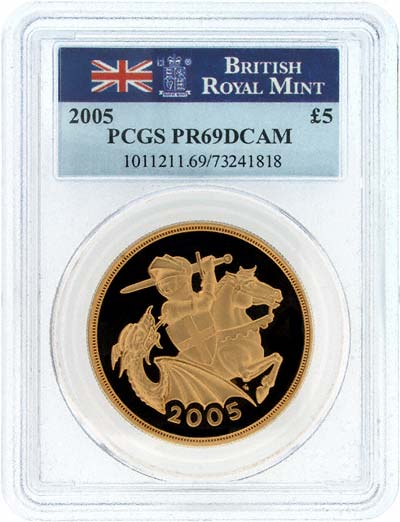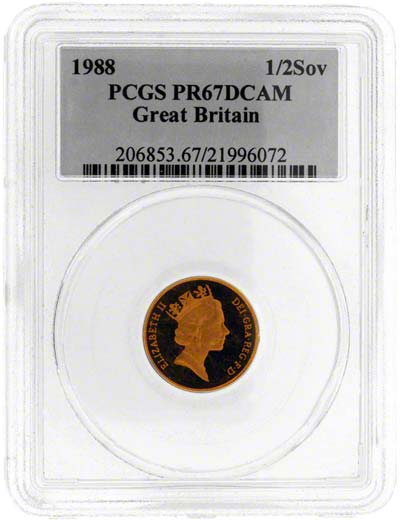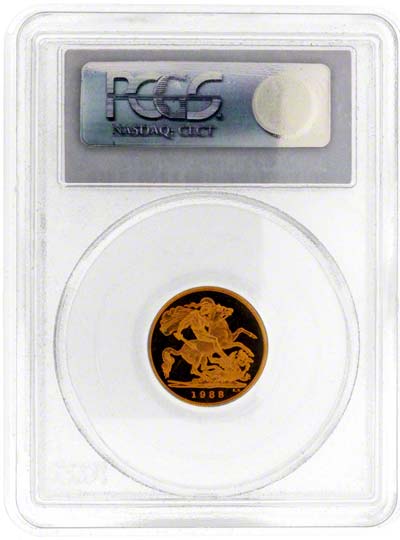To Slab or not to Slab? That is the Question
When we first encountered American coin grading using numbers, we had mixed feeling about it, and we still do.
There are many, often opposing opinions, about numeric grading systems, independent grading services, and encapsulation. Often these three terms are used interchangeably, as though they were one and the same thing, which of course they are not. They do tend to merge because it is now standard practise for independent grading companies to use numeric grading, usually in addition to descriptive grading, and then to encapsulate the coin.
Some collectors will only buy slabbed coins, and it is likely there are "dealers" who only deal in slabbed coins. Equally there are other collectors who would not wish to buy a slabbed coin, and there certainly are dealers who would prefer not to handle them. So who is right and who is wrong?
Sheldon Scale
Dr. William Sheldon is credited with inventing or devising the eponymous scale. While non-numismatists may think it is a skin disease, coin collectors know it as a numerical coin grading scale. According to some sources, there is another Sheldon Scale, devised by the same person, which codified the rarity of American large cents. When we have time, we will try to research this further. It is likely that there are actually two different Sheldon Scales.
Sheldon's reputation is tainted by the belief that he pilfered the American Numismatic Society's collection to enhance his own collection.
His grading scale allocated numeric grades to coins instead of, or in addition to, descriptive grades. Grades are numbered from 0 or 1 through to 70, with 70 being considered as perfect.
He appears to have first published his Scale in 1949, in his book Penny Whimsy (apparently about American large cents). We have yet to discover when it was generally adopted. Some believe this was 1986 when the ANS formed its grading service. It is more likely to be 1958, when "A Guide to the Grading of United States Coins", was first published.
According the ANACS' website, it was "America's Oldest Grading Service", which should make it the first, and it began in 1972, and was created by the American Numismatic Association (ANA). Its original purpose was to counter fakes, and it was not until 1979 that it extended its services to grading.
Coin Slabbing Quick Guide
|
Advantages | Disadvantages
| |
Independent grading | Nannies collectors
| |
Expert grading | Discourages thinking | |
Systematic - objectivity | Competing grading services may vary in quality | |
Finer scale (not strictly slab related) Sheldon | May slide grades to compete (cf diamonds) | |
Reduces debate between buyer and seller | Can't handle actual coins | |
Protects coins | Occupies more storage space | |
Encourages investment via commoditisation | Grading companies denigrate "raw" coins | |
Establishes and reinforces standards | Encourages low quality dealers | |
Assists remote transactions | May damage coins | |
Assists collector to collector trade | Difficult removal | |
Deters forgeries | Raises prices unnecessarily | |
Provides assurance to collectors | Increases cost of coins | |
Independent grading encourages objectivity | Deters overgrading dealers
|
Neutrality
In line with Switzerland, we think a neutral stance is the best one in this case.
As you can see from the above list, we can see and understand both the advantages and disadvantages of "slabbing", and our view is not just a cop-out. In many cases like this, the two sides polarise, and mainly see only their own favoured viewpoint. We are not so narrow minded.
One of the things which catalysed this page was an article published by a fellow British dealer "Why We Don't Handle Slabbed Coins". In this, he makes it quite clear that he does not like slabbing, and we do agree with most of his points. We however, are quite happy to buy and sell slabbed coins. We certainly do not like the fact that we have to have yet another storage system and space for them, or that they occupy valuable secure storage space. It would be an interesting test to offer this dealer a slabbed 1804 silver dollar for £100, and see if his objections held or crumbled.
Interestingly, the same London dealer states that his company does not deal in bullion coins. We are happy to do so, and we feel their is a crossover between numismatic coins and bullion coins. This is particularly so for traditional coins which were originally made for circulation, but even modern bullion coins attract collectors.
As a provincial dealer, we have always taken the view that we cannot afford to be unreasonably selective about the type of coins we will trade. We are here to provide a service, and make a market in coins. We have nothing against more specialised dealers, it's simply a practical philosophy which has worked well for us.
We do not criticise our London competitor for his stance, he is perfectly entitled to his own views, indeed it is encouraging that some fellow dealers adopt their own individual approach to matters. Life would be boring if we were all the same.
More to Follow...
Like most of the 12,000+ pages on our websites, this page is still a work in progress, and we intend to expand on each of the "bullet points" in the above list.
Slabbed Coins For Sale
Independent Coin Grading Services
Since 1986 there have been independent professional coin grading services, originally in the USA, but now elsewhere. We discuss the merits of independent coin grading services, along with encapsulation (slabbing) of coins.
How Do Grading Services Rate?
PNG & ICTA Reveal Survey Results
CGS UK Coin Grading Services
A British coin grading service was founded as recently as September 2006, which also uses a numeric scale, but ranging from 1 to 100 instead of 70 as in the established American grading scales.
Collect Slabbed Coins and Pay More
Many of the coin grading companies claim, probably with some justification, that slabbed coins sell for higher prices than "raw" coins. Claims like this in their advertising and P.R. are undoubtedly aimed at getting collectors or dealers to use their services. The reverse side of this particular coin is that buyers consequently pay more for their coins, surely a disincentive?
|
|

Slabbed 2005 Proof Gold Five Pounds
Slabbed Coins For Sale

Slabbed Proof 1988 Half-Sovereign Obverse

Slabbed Proof 1988 Half-Sovereign Reverse
|



